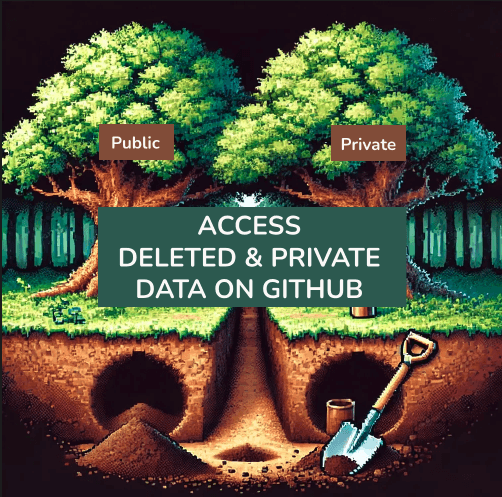- 15 Posts
- 83 Comments

 1·7 days ago
1·7 days agoWell, fundamentally capitalism involves the deprivation of the means of subsistence and production from one class so that they are forced to sell their labour-power to the capitalist class in order to obtain the means of subsistence. You could define that as “mistreatment” or not I guess, but whether or not you do, personal treatment by your capitalist does not change the form capitalism takes. Workers’ power comes from combining. Capitalists are already combined—they work together to keep wages low and prices high. Unionising only levels the playing field in that regard.
I’m not saying that you should always focus on unionisation in every situation—sometimes there is more important political work to be done. But if you have nothing else to do, it’s often the most accessible starting point.

 1·7 days ago
1·7 days agoI would disagree, and I personally know people who have unionised IT workers. I also personally know people who have unionised workers at small companies. I don’t understand why you would say unionisation is not relevant to you? If you’re a worker then it is relevant.

 1·8 days ago
1·8 days agoJoin an organisation agitating for proletarian revolution. If there aren’t any near you, you can start with trade union work to build a mass of militant workers that can form the base of a political organisation.

 3·8 days ago
3·8 days agoI don’t upload photos anywhere public for this reason. For screenshots I just strip the exif data, and if it’s a screenshot that goes from edge to edge of a screen, I resize it so as to not give away info on the size of my screen. I also don’t share the same image in multiple places. If I have any kind of custom theming (fonts or colours) in a screenshot I also usually change it to something more generic, unless the point of the screenshot itself is to showcase the theming.
Hosted by someone else: Codeberg or Sourcehut.
Self-hosted: Forgejo

 1·10 days ago
1·10 days agoNot really, open source projects don’t necessarily have to be open to all contributors and I was aware of this already. They have to be open to anyone doing what they want with the code, by definition, which is good, but they don’t have to allow everyone to contribute to upstream. I’m not sure if there’s any particular defence against this being used in a discriminatory manner, but I do think this effect is significantly mitigated by the decentralised nature of open source and the fact that it’s not too uncommon for forks to become preferred over the original, the fact that open source projects rise and fall in popularity, etc.
I wonder if there’s some way to manage an open source project so that it’s not subject to particular national laws in this way.

 7122·12 days ago
7122·12 days agoEveryone who disagrees with me is a paid russian troll of course. Nobody would oppose blacklisting people based on nothing but their nationality unless they were getting paid for it.
I like doing tech stuff as a hobby yeah. Don’t remember why I signed up for Lemmy but I have been aware of it for years before I signed up. I think I wanted to have a place to talk about FOSS but also in a community that was generally aligned with my political views (hence my decision to sign up for lemmy.ml)

 84·13 days ago
84·13 days agoAside from the fact that it’s pretty insane to suggest to kick someone off a project for no reason other than their nationality (the article doesn’t say any of these maintainers supported the invasion or had any ties with the government), even if these people actively supported the government, as far as kernel development is concerned… I don’t really care? If their contributions are good then I want their patches to be merged. Tor was made by the US government, which I in no way condone, but I still use Tor.
If there’s anything sensitive I’m communicating with someone digitally, I make sure that the person in question has basic tech security skills and knowledge about privacy, including telling them to stop using Windows. Including taking the time to teach them basic stuff (like full disk encryption, VPN and Tor usage, explaining E2EE, etc) myself. If you have a high threat model but are talking to non-techy people, you should be taking the time out of your day to do this.
If you’re thinking “wow I can’t be bothered to do all that”, your messaging is probably not sensitive enough for this to be a significant concern. Not that “if you have nothing to hide you have nothing to fear”, but just “the amount of time you put into security and privacy should be proportionate to your threat model and the cost of compromise”.

 201·13 days ago
201·13 days agoMost folks on the planet are Indian, Chinese, or in an Islamic country of some sort. Now do tell, dear blakeus12. How do all of those cultures treat LGBTQ+ people :|
I’ve lived in at least one of the countries you’ve mentioned. LGBTQ+ people exist and live in the same capacity they do in western Europe and North America. It seems ridiculous for a westerner to try to implicate global majority countries for queerphobia when the US and UK are currently on a trans exterminatory cultural rampage. Stones in glass houses shit.

 3916·13 days ago
3916·13 days agoI think you shouldn’t assume everyone on the internet to be a man. It is misogynistic. I don’t think there would be anything wrong with e.g. referring gender neutrally to someone who turns out to be a woman because you didn’t check her profile which says she’s a woman, but it is annoying to see people assume everyone on the internet to be male. I’ve especially experienced this in more techy communities which definitely seems like sexist stereotyping to me.

 41·1 month ago
41·1 month agoI thought you meant military occupations and I was so confused. Like asking what’s the one military occupation you oppose (you aren’t allowed to oppose any others)
Homeschooled or just not educated?

 2·1 month ago
2·1 month agoFor private messaging? Signal was always better. The way I use Telegram, and the way Telegram should be used, is like another public social media. I use it for following channels that give news about things I’m interested in.
Artix repos > Arch repos > existing AUR package > create my own AUR package
No need to use any of these flatpak/appimage/snaps when I can just make a package for my distro. Most software is not difficult to package.

 3·2 months ago
3·2 months agoAgain, why use Windows at that point?

 211·2 months ago
211·2 months agoAt that point please just use another OS. You should be keeping your OS up to date.

 251·2 months ago
251·2 months agoI really don’t like the trend of things that should be articles, being videos instead. And I’m very unlikely to watch one of these videos. However, this is a personal preference and I don’t necessarily think videos should be banned from this community. Instead upvotes/downvotes could decide that; if no one wants to see videos, no one should upvote them.





I read it as a jokey community and maybe you took it too seriously. Regardless that’s a kinda silly comment to leave. That’s a community for, ironically or seriously, hating Linux, so obviously it’s not in the spirit of the community to leave a serious comment defending Linux.
I see a lot of Windows hate on Lemmy. If someone made a post here complaining about how much they hate Windows, and a Windows fan replied explaining why Windows is so great, I would say it’s kinda heavy-handed but not totally ridiculous for a mod to ban them, since a Linux community is probably not for this person.